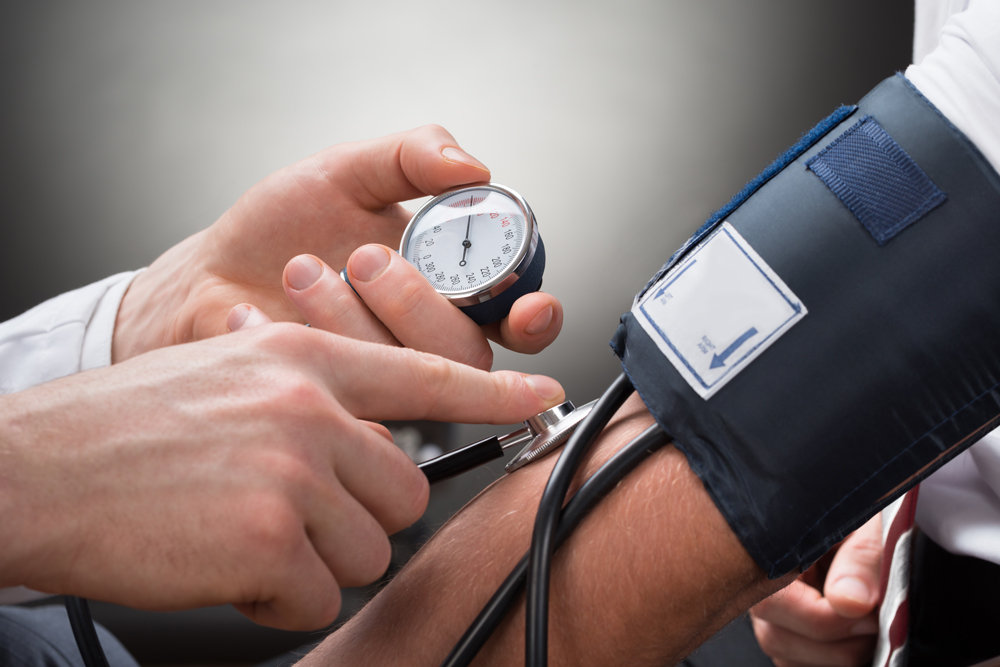Millions of Americans are diagnosed with high blood pressure every year. High blood pressure is a serious health condition that is caused by a variety of factors.
If you have high blood pressure, it’s important to inform yourself of your condition in order to maintain a healthy lifestyle. This can be difficult if you’re just beginning to learn about how you can manage your health.
At South Texas Renal Care Group, our specialist doctors can help you with high-blood pressure treatment and management methods. The prime intent is to ensure your complete health and wellbeing.
Visit Our Clinics in South Texas Near You or Request for An Appointment at 210-212-8622 For Professional Consultation.
This guide will provide extensive information surrounding frequently asked questions (FAQs) about high blood pressure.
What Causes High Blood Pressure?
It remains unclear what causes high blood pressure in most people. However, obesity, older age, poor diet, genetics, and inactivity all contribute to the development of hypertension.
Primarily, people that live inactive and otherwise unhealthy lifestyles are more likely to develop the disease. People that have a family history of hypertension also have increased odds of developing the disease if they live an unhealthy lifestyle.
What Health Issues are Associated with Hypertension?
High blood pressure is linked to other severe health issues. These issues include:
- Atherosclerosis: This is a disease in the major arteries that is caused by the massive buildup of fatty material, or plaque, on the inside walls of your blood vessels. High blood pressure adds stress and pressure to the blood vessel walls.
- Heart Disease: Since high blood pressure affects your arteries, it can lead to heart disease. Specifically, hypertension can lead to heart failure (when the heart is too weak to sufficiently pump blood), hypertensive hypertrophic cardiomyopathy (when the heart muscle acts abnormally), and ischemic heart disease (when the heart doesn’t get enough oxygen and blood).
- Kidney Disease: High blood pressure can damage the filters and blood vessels in your kidneys. This can result in your kidneys failing to dispose of waste and filter your blood properly. Reciprocally, kidney disease can cause high blood pressure.
- Stroke: High blood pressure can cause a stroke, either by leading to blockages in your arteries or weakening these arteries until they rupture. Medical studies confirm that people with higher systolic blood pressure may suffer bleeding strokes, while those with higher diastolic blood pressure may have abdominal aortic aneurysm.
- Eye Disease: Hypertension can weaken small blood vessels in your retina, which can eventually lead to complete blindness.
What are High Blood Pressure Symptoms?
High blood pressure typically doesn’t have any symptoms in its first stages. For this reason, high blood pressure is generally diagnosed by a healthcare professional during a checkup.
If you have a relative diagnosed with hypertension, their blood pressure should be monitored closely. People with hypertension in their family history are more likely to develop the disease than others.
People unknowingly with high blood pressure may experience spikes in their blood pressure, which can result in chest pain, strong headaches, poor exercise tolerance, and difficulty breathing.
If you are experiencing any of these symptoms, contact your healthcare provider or blood pressure specialist for effective hypertension treatment and management for lasting results
What are Common High Blood Pressure Treatments?
High blood pressure treatments primarily include lifestyle changes. These lifestyle changes include:
- Losing weight
- Giving up smoking
- Maintaining a healthy diet
- Eating less salt
- Consistent aerobic exercise
- Reducing alcohol consumption
Prescribed medications for high blood pressure include diuretics, alpha-blockers, calcium channel blockers, ACE inhibitors, beta-blockers, and angiotensin receptor blockers.
Your high blood pressure treatment depends on how well you routinely take your medications, exercise, and maintain a healthy diet.
What are the Side Effects of Hypertension Drugs?
As with any other medications, there are noticeable side effects of hypertension drugs. The most common side effects include:
- Diuretics: low potassium blood levels, headaches, fatigue
- ACE inhibitors: diarrhea, high potassium blood levels, dry cough, strong headaches
- Angiotensin receptor blockers: diarrhea, high potassium blood levels, fatigue, congestion, fainting or dizziness
- Calcium channel blockers: constipation, ankle swelling, dizziness, irregular heartbeat
- Beta-blockers: low heart rate, reduced sex drive, drowsiness, dizziness.
- Alpha-blockers: nausea, weight gain, strong headaches, dizziness, pounding heartbeat, weakness.
What Type of Diet Should I Follow?
People with high blood pressure should follow the Dietary Approaches to Stop Hypertension (DASH) diet. This diet is effective for hypertension management while helping you to properly cope with your condition.
In accordance with the DASH diet, you should follow these steps:
- Eat more vegetables, fruits, and low-fat dairy foods.
- Eat fewer foods that contain high amounts of cholesterol, saturated fat.
- Eat more poultry, grain, nuts, and fish.
- Eat fewer sweets and red meat.
- Eat fewer foods that contain high amounts of sodium.
When Should I Call My Doctor About My High Blood Pressure?
If you have been diagnosed with hypertension, visiting with your doctor on a regular basis is important. Your doctor will be able to answer all of your questions concerning your condition.
There are other times you may contact your doctor, which include:
- If your body doesn’t respond to your medications and your blood pressure keeps rising or doesn’t drop.
- If you are experiencing harsh side effects from your medications. Your doctor may adjust the dosage or prescribe new medications depending on your symptoms.
Are There any Medications That Can Cause Hypertension?
Some medications you may be prescribed for other health conditions may increase your blood pressure. These drugs include, but are not limited to:
- Amphetamines,
- Methylphenidate
- Corticosteroids
- Hormonal supplements (including birth control pills)
- Certain migraine medications
- Cyclosporine
- Erythropoietin
There are many over-the-counter medications that may increase your blood pressure, such as allergy medicine. Ask a specialist if the medicine you are currently taking will affect your blood pressure.
Your physician will not prescribe you anything that will conflict with your blood pressure medicine. Nonetheless, it is advised to ask.
Ask your doctor if taking any other medication will affect your blood pressure. This will help you avoid the various side effects and heightened blood pressure from other drugs.
Do not take any medication without consulting first with your doctor.
Contact Us Today!
Are you currently dealing with high blood pressure and would like to speak to a specialist? If so, contact us at (210) 212-8622 to learn more.

